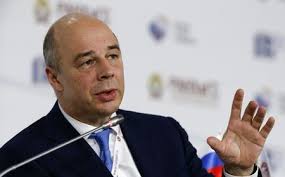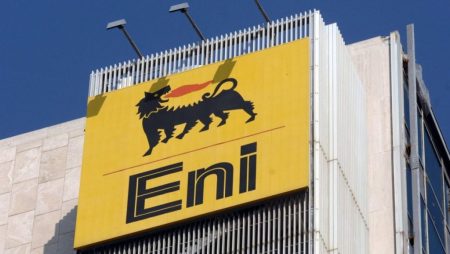24 February 2015, Abuja – The forensic audit of the Nigerian National Petroleum Corporation on unremitted crude oil revenue by PricewaterhouseCoopers (PwC) suggests that the state oil company should be transparent in its dealings. Chineme Okafor writes

The findings of the investigation conducted by PricewaterhouseCoopers (PwC) were made public recently by the Office of Auditor General, bringing to an end, insinuations that government was not commitment to follow through with the audit and fears expressed by most Nigerians that findings of the audit may not be made public. Their misgivings were however not out of place especially on past accounts of overwhelming transparency deficits in NNPC’s operations.
Statutorily, the NNPC undertakes regular audit of its accounts but never made them public. Nemo iudex in causa sua; this is a Latin phrase that means “no one should be a judge in his own cause”. It is a principle of natural justice that no person can judge a case in which he has an interest in. Therefore, if reports of these internal audits conducted by the NNPC were made public, not many Nigerians would have believed they were genuine because of possible bias.
How it all began
Parties in the controversy, NNPC and CBN had shown open resentments to each other between September 25, 2013 when then CBN Governor, Sanusi Lamido Sanusi wrote to President Goodluck Jonathan on the alleged underpayment. The heated arguments that greet the pronouncement, prompted the Coordinating Minister for the Economy and Minister of Justice, Dr. Ngozi Okonjo-Iweala instituted the PwC audit and July 10, 2014.
In his letter to Jonathan, Sanusi had alleged that the NNPC, between January 2012 and July 2013 lifted 594,024,107 barrels of crude oil valued at $65,332,350,514.57 from which it only paid $15,528,410,098.77 representing 24 per cent of the crude sales value but yet to account for, and repatriate to the federation account, an amount in excess of $49.8 billion or 76 per cent of the value of oil lifted in the same period.
The Corporation denied the allegation, insisting that Sanusi lacked understanding of the workings of the oil industry and how revenues from oil lifting are remitted to the federation account.
Specifically, NNPC’s Group Managing Director then, Andrew Yakubu said the CBN actually understated the figures of lifting by NNPC by 4.13 per cent.
He debunked the allegations and explained that NNPC crude oil liftings included equity crude, royalty oil, tax oil, volume for third party financing and the equity volume of the Nigerian Petroleum Development Company (NPDC), its E&P subsidiary.
He posited that remittances of proceeds from each of the five streams are made according to statutory and production arrangements, adding that all remittances due to the federation account had been made.
Perhaps unsatisfied with the ensuing development, Okonjo-Iweala requested for a reconciliatory meeting of an inter-agency committee, comprising the ministry of finance, Budget Office of the Federation, CBN, NNPC, Federal Inland Revenue Service (FIRS) and the Department of Petroleum Resources (DPR) to reconcile the revenue differences.
Announcing the outcome of the inter-agency meeting, Okonjo-Iweala stated that $39 billion of the alleged $49.8 billion had actually been remitted to the Federation Account and that further reconciliation of the balance of $10.8 billion was ongoing
Shifting the goal post
Similarly, a senate committee on finance led by Senator Ahmed Makarfi was told by Sanusi that $12 billion was missing as against the findings of the inter-agency committee.
The committee had affected agencies back to the inter-agency committee to work out their differences and at a resumed hearing of the senate committee on finance, Okonjo-Iweala informed members that it had certified and signed off on the claims of NNPC to the tune of $8.7 billion for petroleum products subsidy.
She however noted that the committee had no technical competence to verify the other claims of $2.1 billion for pipeline repairs and maintenance, strategic reserves and suggested that a forensic audit of the claims including what the Petroleum Products Pricing and Regulatory Agency (PPPRA) had certified and signed off be undertaken.
In making the suggestion, Okonjo-Iweala stated that even though the claims of NNPC had been certified, given the extraordinary times, it may be necessary to invite forensic auditors to do a forensic examination. She equally sought for a legal opinion on the status of NPDC and third party financing alliances by NPDC.
But in a twist of events, Sanusi, now the Emir of Kano, who earlier agreed with the finding of the inter-agency committee especially on the grounds that the agencies responsible for certification of products importation and subsidy claims certified the claims of NNPC, surprisingly stated that $20 billion not the $12 billion was yet to be remitted.
He categorised the allegedly unremitted funds as outstanding $12 billion (contrary to the $10.8 billion), $6 billion being gross revenue earned by NPDC and $2 billion being payments to third parties.
Sanusi also posited that NPDC being a subsidiary of the NNPC must remit all its revenue to the Federation Account in line with the constitutional requirement in Section 162 (10) c.
He also questioned the legality of NNPC’s floating of subsidiaries to do business and keep their funds as well as the propriety of the process of incorporating NPDC and the strategic agreements it entered into, to which the senate committee invited the Attorney General of the Federation to clarify.
The Attorney General in response to the committee’s enquiry, upheld NNPC’s legality to to defray cost of operations from its revenue, as well as its capacity to float companies to do business.
PwC audit and findings
Following the completion of its audit of the books of NNPC with regards to CBN’s claims, PwC on February 2, presented its findings to Jonathan who transmitted it to the Office of the Auditor-General for onwards disclosure to the public.
Highlights of the audit report were disclosed to the public, recommending that the NNPC and NPDC to remit the sum of $1.48 billion being the book value for signature bonus due from divested assets and taxes/royalties.
As against CBN’s claims, the signature bonuses, royalties and taxes were on the oil wells divested by Shell and assigned to NPDC and which the NNPC said were not part of the $49.8 billion oil lifting revenues which it was charged of not remitting.
Responding to the audit report, the NNPC insisted that the recommendation to pay the signature bonus for the divested oil wells was not an indictment in anyway.
The Group Managing Director, Dr. Joseph Dawha stated that the sum represents the balance of the book value of the assets assigned to NPDC upon divestment by Shell as computed by the DPR.
He further explained that the full book value of the assets as computed by DPR was $1.847 billion out of which NNPC had paid over $300 million as a token to indicate its interest in acquiring the assets pending when NNPC and DPR come to terms on a mutually acceptable estimate of the book value of the assets.
According to him, NNPC had raised concerns over some of the parameters that DPR used in arriving at its figures.
Also on deductions and kerosene subsidy, Dawha noted that the PwC’s report was unequivocal that the NNPC Act empowers NNPC to defray its costs from crude oil sales proceeds.
He insisted that the NNPC could not be blamed for doing what the law prescribes, adding however that NNPC was ready to embrace the legal reform proposed in the Petroleum Industry Bill (PIB).
A win for public disclosure
While the forensic audit report stated that all the revenue generated from crude lifting for the periods under review, amounting to $69.34 billion have been fully accounted for in affirmation of the findings of the senate committee, it is important however to consider the good sides of the development, which for Nigerians is rare.
The report, no doubt has made the NNPC to go through an unusual path of transparent disclosure of operational data and information. Prior to the allegations, the corporation rarely lent any ear to whatever was said about the opaqueness of its operational details.
This is no doubt one of the central weaknesses in the governance of Nigeria’s oil and gas.
When citizens do not have access to important data and information on oil sector operations, demand for accountability from the state oil company by civil society groups, state actors in the push for transparency like the Nigeria Extractive Industries Transparency Initiative (NEITI) amongst others become quite difficult.
A recent research on deficit of transparency in the disclosure of information on the Nigerian oil sector by the Centre for the Study of the Economies of Africa (CSEA) and Facility for Oil Sector Transparency (FOSTER), identified that weaknesses in the legal and legislative frameworks governing the disclosure of oil sector information as well as poor technical capacity and inter-agency bureaucracy hamper information disclosure and data sharing in the sector.
The partnership posited that beyond criticising state institutions for poor disclosure of information, the seeming absence of laws to compel transparent disclosures is often responsible, in addition to a non-deliberate attempt by agencies to transparently disclose details of their operation for public scrutiny.
In the long run and regardless of its scope, the PwC audit has for good made NNPC submit its operations to public scrutiny, in expansion of the conversation and demands for transparent disclosure of operational details in Nigeria’s oil and gas industry.
– This Day



